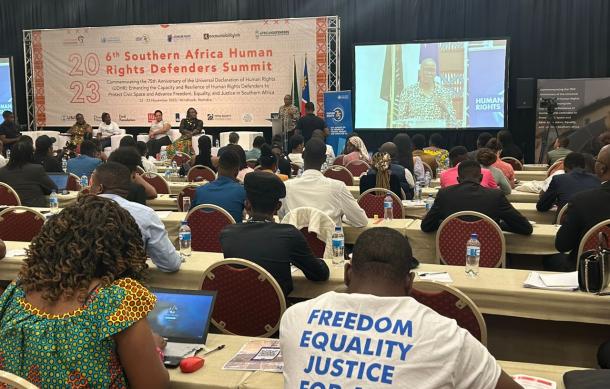
Justice Minister Yvonne Dausab has stressed the need to translate words into action by effectively implementing policies that are inclusive, especially for women.
This, she says, creates an integrated human rights ecosystem, allowing for equal opportunities.
Minister Dausab pointed out that Namibia is doing relatively well in the human rights ecosystem as it has the right policy and constitutional language, explaining that the language in various pieces of legislation is fit to address questions around gender inequality.
However, Namibia still struggles to meet its implementation targets, especially around equality, which affects mostly women.
This requires dialogue and an urgent call to action.
"You must create the right conditions for women, primarily, but also for men, in such a manner that we are all on the same page about where we are headed. But if you really want to make a difference and if you want to integrate the gender space and create equal opportunities for women, women have suffered special discrimination for many years, and that has set women back. Even if for the next fifty years there's some improvement, there's still discrimination that women continue to suffer."
Dausab also commended Namibia's strong political will, which is reflected in key policy arrangements, ratified international instruments, and enacted legislation.
But according to her, Namibia appears to be at a standstill with regards to women's representation, partially attributed to cultural factors that constrain choices for women.
"Even though our childcare protection care prohibits child marriage very clearly in our traditional communities, we can still find instances of child marriages, especially among the villages' women, who don't have these kinds of choices. Our ambition, motivation, and willingness are shaped and constrained by organisations."
Dausab was speaking during a session titled "From Word to Work: Integrating Gender, Equality, and Inclusion in the Human Rights Ecosystem" at the Human Rights Defenders Summit.





